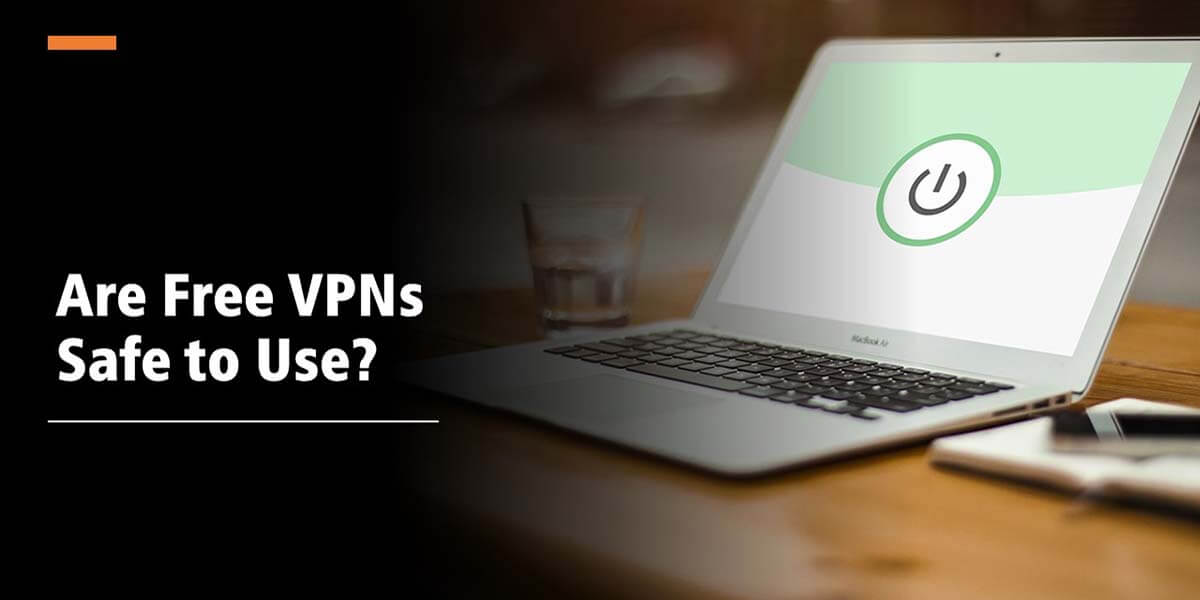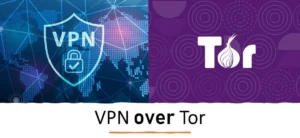Are Free VPNs Worth the Risk?
In today’s interconnected world, Virtual Private Networks (VPNs) have gained significant traction due to the critical need for preserving online privacy and security. VPNs offer several benefits, such as anonymous browsing, data encryption, & the ability to access restricted content based on geographical location. Despite the availability of paid VPN services that provide robust features, the affordability of free VPNs tends to attract a large user base. Though, it is essential to have a comprehensive understanding of the inherent risks associated with free VPN Providers, as they have the potential to compromise both users’ privacy and security.
Key Takeaways
- Free VPNs offer certain benefits, such as hiding your IP address, bypassing censorship, and basic WiFi security. However, they have significant limitations compared to paid VPNs.
- Free VPNs often lack key safety features, such as a strict no-logs policy, reliable encryption, protection against DNS leaks, and secure protocols. As a result, they pose major privacy and security risks.
- Free VPNs make money by selling your data, serving intrusive ads, secretly installing malware, imposing strict data caps, and more unethical practices.
- Paid VPNs are affordable these days (often less than $3 per month). Leading paid VPNs offer strong safety features and do not compromise user privacy.
- While free VPNs may seem tempting, the smart approach for most users is to invest in a trustworthy paid VPN that values your privacy and security.
What are Free VPNs?
Free VPNs, as their name implies, refer to VPN services provided to users without any monetary cost. These services typically impose certain limitations, including constrained bandwidth, restricted server options, and slower connection speeds than their paid counterparts. To make a well-informed decision regarding the desired level of security and privacy, it is crucial to discern the distinctions between free and paid VPNs.
What are the Major Security Risks and Downsides of Free VPNs?
While free VPNs offer some upside, they also come with considerable risks and downsides:
- No strict no-logs policy: Most free VPNs log user activity, and some even sell this data to third parties for profit. This compromises privacy.
- Weak or no encryption: Free VPNs often use dated encryption or insecure protocols (like PPTP and L2TP), which are vulnerable to hacking.
- Limited server locations: Having fewer server locations limits which regions you can access content from and reduces redundancy.
- No protection against DNS leaks: Free VPNs rarely protect against DNS leaks, which can expose your true IP address and location.
- Data caps—Free VPNs impose strict monthly data caps, which limit internet usage to a few GB per month.
- Invasive ads: You’ll have to deal with intrusive, distracting ads. Some free VPNs inject ads right into your browser traffic.
- Risk of malware: Shady-free VPNs have been caught installing malware like keyloggers on user devices without consent.
How Do Free VPN Companies Make Money?
If free VPN services don’t charge users, how do they make money to cover their operating costs? Unfortunately, many of them rely on unethical practices that take advantage of users:
- Selling user data: Free VPNs log and sell your browsing data, online activities, and personal info to third-party advertisers and other entities. This generates major revenue.
- Serving intrusive ads: You’ll have to deal with a barrage of intrusive ads during your browsing sessions: the VPN provider profits from ad views.
- Premium upsells: Limited free plans are offered as a low-commitment way to encourage upgrades to more advanced paid plans.
- Affiliate marketing: Free VPN services make money when users sign up for other products/services through their affiliate links.
- Cryptocurrency mining: Some shady VPNs secretly install crypto mining malware on user devices without informing them.
- Government sponsorship: There are speculations that some free VPNs are sponsored by governments that subsidize costs in return for user data.
Case Studies and Examples
Several incidents have highlighted the risks associated with free VPNs. For instance, in 2021, a popular free VPN service was discovered to have exposed the personal data of over 20 million users. This incident not only compromised user privacy but also raised concerns about the security practices employed by free VPN providers.
In another case, a free VPN provider was found to be injecting ads into users’ web browsers, even modifying search results to generate revenue. These practices not only hindered the browsing experience but also exposed users to potentially dangerous websites and malware.
These examples demonstrate the potential consequences of using free VPNs, including compromised privacy, data breaches, and exposure to malicious activities.
Are Paid VPNs Safer and More Trustworthy?
Paid or premium VPN services are generally much safer to use versus free alternatives. Here’s why:
- Strict no-logs policies: Top paid VPNs have robust no-logs policies audited by third parties. They do not monitor or sell any user activity data.
- Military-grade encryption: Paid VPNs offer the latest encryption standards, such as AES-256 bit and OpenVPN protocol, to fully secure connections.
- Leak protection: They prevent IP, DNS, and other leaks via failsafe features like kill switches and IPv6/WebRTC blocking.
- Global server network: Robust server coverage across 60+ countries gives you plenty of regional options and redundancy.
- Unlimited data: Paid VPNs do not impose restrictive data caps. You get unlimited high-speed data.
- No ads: Your browsing experience remains ad-free and hassle-free with a paid VPN.
- Firewalls and anti-malware: Leading paid VPNs offer powerful cybersecurity features to protect against malware, phishing, and hacking.
- Reliable support: Paid VPNs invest heavily in 24/7 customer support and provide quick solutions if you face any issues.
How to Choose a Reliable VPN
To guarantee the utmost privacy and security when utilizing a VPN, it is imperative to meticulously choose a VPN service that is both dependable and reputable. Take into account the subsequent factors when making your selection:
- Security features: Look for VPN providers that offer robust encryption protocols, such as AES-256, to protect your data from unauthorized access. Additionally, features like kill switch, DNS leak protection, and split tunneling can enhance your online security.
- No-logs policy: Choose VPN services that have a strict no-logs policy, ensuring that your online activities are not tracked or stored. This reduces the risk of your data being exposed or sold to third parties.
- Server locations: Opt for VPN providers that offer a wide range of server locations. This allows you to bypass geo-restrictions and access content from different regions while maintaining a secure connection.
- Positive reputation and reviews: Research and read reviews from trusted sources to gauge the reputation and performance of VPN providers. Look for providers with a strong track record of reliability and customer satisfaction.
- Transparent privacy policy: Carefully review the privacy policy of the VPN service before making a decision. Ensure that it clearly states how your data is handled, whether it is shared with third parties, and if there are any exceptions to the no-logs policy.
- Customer support: Consider VPN providers that offer reliable customer support channels, such as live chat or email, in case you encounter any issues or have questions regarding the service.
Common Myths About Free VPNs
There are some stubborn myths about free VPN services that need debunking:
Myth: A VPN is a VPN, whether it’s free or paid
Reality: This is absolutely false. Paid VPNs must meet far higher standards and are incentivized to protect user privacy. Free VPNs lack key security features and have incentives to exploit user data.
Myth: All free VPNs are unsafe
Reality: There can be some exceptions, but the vast majority of free VPNs cut corners and expose users to privacy risks. Proceed with extreme caution.
Myth: Free VPNs won’t affect internet speeds much
Reality: Most free VPNs impose strict bandwidth limits. Your speeds will tank if you exceed the tiny monthly data caps.
Myth: Free VPNs won’t inundate you with ads
Reality: Ad mining is one of the top revenue sources for free VPNs. Expect constant disruptive ads during your browsing.
Myth: Free VPNs won’t sell my data to third parties
Reality: This is one of the most common business models of free VPNs. Your data has significant commercial value to them.
Final Thoughts
Although free VPNs may appear enticing due to their cost efficiency, they present substantial risks to both privacy and security. Factors such as data logging practices, insufficient security measures, the possibility of distributing malware, and the sale of user data make free VPNs a hazardous option. It is of utmost importance to prioritize online safety by opting for a reputable paid VPN service like NordVPN that places a premium on user privacy and implements robust security measures. By making a well-informed decision, one can reap the benefits of a VPN while concurrently safeguarding personal information within the digital domain.
Frequently Asked Questions (FAQs)
Are all free VPNs risky?
While not all free VPNs are inherently risky, the majority of them pose significant privacy and security risks. It’s important to thoroughly research and evaluate a free VPN service before using it.
Can free VPNs be trusted with my personal information?
Trusting a free VPN with your personal information is risky, as many free VPNs have been found to log and sell user data. It’s recommended to choose a reputable paid VPN service that prioritizes user privacy.
Why do free VPNs exist if they are not secure?
Free VPNs often monetize their services through data collection and advertising. By offering a free version, they attract a large user base that they can profit from by selling user data or displaying ads.
Are paid VPNs completely safe?
While paid VPNs generally offer higher levels of security and privacy compared to free VPNs, no VPN service is entirely risk-free. Choosing a trusted provider with a strong reputation and robust security measures is important.
Are free VPNs safe for banking and shopping?
No, free VPNs should never be used for sensitive online activity involving login credentials or financial details. Their lack of leak protection and weak encryption means cybercriminals could intercept your data.
Can free VPNs access my files?
Yes, many free VPNs have been caught red-handed installing malware that can access personal files on your device without consent. Avoid granting any unnecessary permissions when installing free VPN apps.
Do free VPNs protect against hackers on public WiFi?
Minimally. Encryption-free VPNs offer better protection than no protection, but they are easily hacked by sophisticated cyberattacks targeting public WiFi users. Invest in a paid VPN for robust public WiFi security.
Can using a free VPN get me into legal trouble?
Yes. If a free VPN keeps logs, they can be subpoenaed to share any illegal downloading or other cybercrime activities traced back to your usage. With a strict no-logs paid VPN, you avoid this risk.
Is it illegal to use a free VPN where I live?
A small number of extremely restrictive countries, such as North Korea, Iraq, Turkmenistan, and Belarus, have banned the use of VPNs. Check your local laws before using any VPN just to be safe. In most places, VPN usage is legal.

 Verified A Professional Content Writer
Verified A Professional Content Writer
Riha Mervana is a professional content writer at SearchVPN.org, with extensive experience crafting engaging and informative content. She has established herself as an expert in the VPN industry, creating content that educates readers on the importance of online privacy and security.



